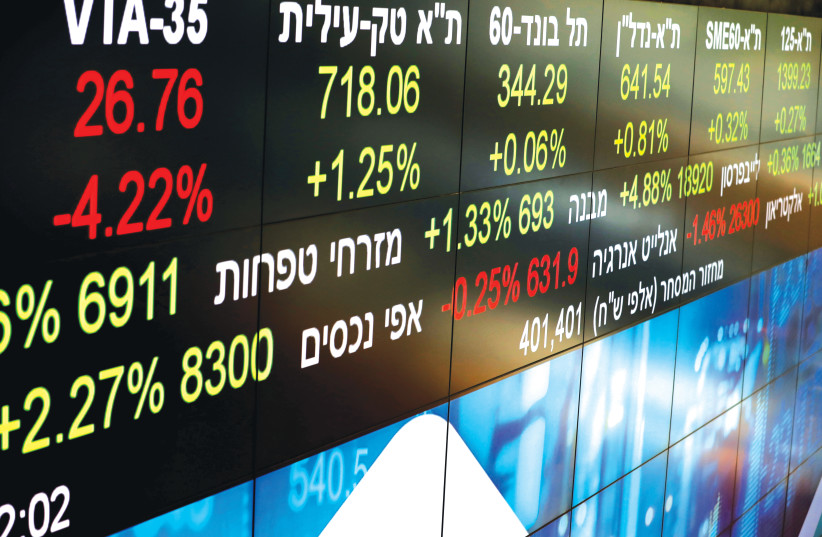In sports, it is generally agreed that playing on your home field or court is an advantage, but is this true on the playing field of the capital market? Not necessarily, and especially not regarding public companies whose shares are traded on the local stock exchange, as opposed to ones whose shares are traded on a foreign stock exchange.
Since considerable difficulties are being reported about Israeli hi-tech companies that operate on stock exchanges abroad, we should examine whether the aspiration of every Israeli hi-tech entrepreneur to press the red button on Nasdaq requires retaining a suitable alternative for raising capital from the Israeli public. In certain cases, this possibility can help preserve the stability of the company and its continued development.
More than 20 Israeli companies, mainly in the hi-tech field, have been issued on Nasdaq in the last three years, with a value of tens of billions of dollars. Since then, some of them have already managed to lose no less than 90% of their value from their peaks.
There are many examples of Israeli hi-tech companies that decided to turn to foreign trading arenas and were issued at huge values. However, after a short time, they lost a large part of their value and were compelled to contend with significant administrative changes because of their operations in those arenas.
Even if most of the companies did not justify those huge values (some of which can also be attributed to the global wave of issuances and hi-tech investments that followed the COVID-19 pandemic), the turning of Israeli hi-tech companies – most of which were unicorns that had already reached a value of more than a million dollars on the private market – to the large markets has definitely proved itself on several occasions.

However, it would appear that because of the upheavals in the global markets, against the background of the rise in interest and inflation, with an emphasis on the United States, the hi-tech companies rushed to abandon the possibility of also playing at home on the more familiar and smaller, but more stable, playing field, and also reaching the Israel investing public.
Encouraging Israeli companies, foreign companies to list in Israel
The Israeli legislature, for its part, has also shown that it is definitely interested in encouraging Israeli companies and foreign companies that are traded abroad to list also in Israel. For this purpose, chapter E3 of the Securities Law was introduced in Amendment No. 21 of the law. The amendment defined the conditions on which companies listed on certain stock exchanges abroad can also become listed on the Tel Aviv Stock Exchange, and vice versa.
THE AMENDMENT allows companies that are traded on leading global stock exchanges (Nasdaq, NYSE, LSE, Hong Kong, Singapore and Toronto), on certain conditions, to list their securities in a dual listing, in a short and quick process that mainly requires publishing only a technical listing document, without a need to publish a prospectus, and thereby becoming a dual-listed company.
According to the TASE data, there are currently 69 dual-listed companies, of which 47 have a real connection to Israel.
Dual listing has many advantages for hi-tech companies that are traded abroad. Inter alia, it also allows those companies, when they become dual-listed companies, to attract Israeli investors, both private and institutional, and thereby diversify the mixture of investors and open additional channels for the company to raise money. Moreover, it allows those companies to generate higher liquidity and marketability than when trading on one market, since Israeli and international investors can trade simultaneously in two markets.
Thus, de facto, dual listing allows the dual-listed companies to benefit from an increase in their cumulative trading volume, because mutual funds and exchange-traded funds that invest in stock exchange indexes make passive demands for the company’s shares when they are included in the index. Dual-listed companies in Israel attract considerable interest.
There are also additional advantages, such as longer trading hours and the existence of continuous trading on at least one of the two stock exchanges. For example, there is trading on Sundays in Israel, at a time when the foreign stock exchange is closed, as well as on public holidays abroad, when there is normal trading in Israel.
An additional advantage is the possibility that the dual-listed company has of raising capital in Tel Aviv, with a smaller minimum issuance amount than what is required abroad. Thus, during the prolonged fighting in Ukraine, the energy crisis in Europe and the extensive lockdown policy in China, the stock market in Tel Aviv has demonstrated relative strength and has been affected less than other stock markets around the world.
This leads us to the question whether those Israeli hi-tech companies will have the common sense to “come home” and exploit the advantages inherent in trading on two markets.
Adv. Gerzi is a partner and head of the capital market department at Pearl Cohen. Adv. Tomer Tzach is an attorney in the department.
